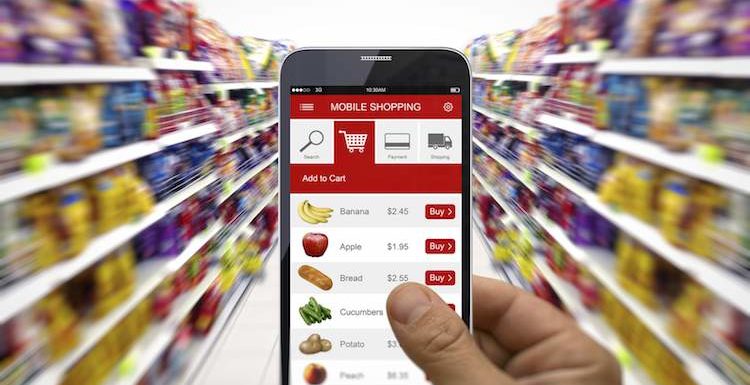
Nowadays, more and more people are spending most of their time on the smartphones browsing through a variety of mobile apps. A market research says that around 83% of people interact with their smartphones during the first 60 minutes of their day and around 90% of people spend their time on mobile apps while using their smartphones. This stats has made it clear that the shift to mobile has profound consequences for the retailers.
Initially, retailers used to think of mobile apps as something “nice to have” component and not something crucial. However, the growing popularity of mobile apps among users has made the retail businesses realize the value of a dedicated mobile app. In this article, we will discuss the benefits of retail mobile app development.
Apps can do what websites cannot
Mobile apps provide the fastest and most reliable experience to the users. They are more responsive and have lesser connectivity issues than websites. Mobile apps provide the retailers a new way to connect with their customers and provide more convenient and personalized shopping experience through features like push messages, in-app inbox rich messages and many more.
Increase customer loyalty
Loyalty cards together with the apps can help to boost the sales and engagement of any business. With retail mobile apps, you can provide information about discounts, sales and any other offers to your customers on a real-time basis. An app is a great way to remain connected with the customers. Offering discounts to the customers through an app can be a great way to reward the customers who took the time to download your app.
Retail mobile apps allow the customers to compare the products they want with the other brands. This will let the customers get a better idea of the products they wish to buy which will result in more customer engagement and repeat customers. Being a retailer, you can send push notifications about the deals to your customers via an app.
It is better than sending promotional emails which remains unopened most of the times. While on the other hand, a push notification appears directly on the users’ smartphone screen. The user then needs to act on that notification (by tapping to open it or dismiss it).
This means that the users will be directly driven to your app. You can also make use of GPS technology to send personalized messages or messages regarding the information of the new products and services or messages about the current discounts available at your store when they pass by your physical store. By offering such features using the latest technologies can help you to create a strong brand and customer loyalty.
Your competitors have it
All the businesses whether small or medium-sized, all are having an app today. Nowadays, people prefer buying online on an app rather than going physically as they can buy the stuff they want from anywhere and at any point of time which is not possible with the physical stores.
So, if your competitors have an app, it is likely that you may lose your customers to them. As per a research, around 83% of top retailers have a mobile application developed for their business. This shows that mobile apps have become mandatory for the growth of the business while staying intact in this competitive market.
Increase sales and profit
This is the most important thing for any retailer. After all, all a retailer wants is to increase the sales and profit of the business. As per a market research, around 88% of customers use retail apps and around 42% of the total revenue of the top 500 retailers is generated from the retail apps. These figures are enough to tell that it’s time to invest in a mobile app.
Increase conversions and window shopping
Average conversion and transaction values are higher on mobile apps than on mobile websites. Additionally, tablet apps are also showing an increase in the conversion and profitability. Besides this, the brand retailers should not forget the window shopping feature of the mobile apps.
As per a survey, 40.4% of users who had downloaded a retailer mobile app ended up buying more and more products and services.
While the app caused around 45.9% of people to visit the store more often. So, to increase the brand visibility and conversion rates, shifting to mobile apps is necessary.
Simplified and easy mobile payments
Retailers can provide fast and secure payment options through retail mobile apps. Secure payment options are especially important for the people who are constantly on move and don’t carry much cash with them. With retail mobile apps, you can provide a large number of payment options to the customers, making it convenient for them to buy and pay for the products and services from wherever they are and whenever they want. Moreover, payments have become easy through apps with the use of built-in smartphone features.
Personalized touch to your app
Mobile apps enable the retailers to connect with their customers personally and facilitate a new way of conversation between their brand and the customers. New technological advancements in mobile app development has further helped the retailers to use features like push notifications, in-app messaging and other such interactive features to send customized communications to the customers. All these features are the proven solutions to improve conversion, engagement and revenue.
Mobile apps does not only let the retailers connect with the customers but they also allow them to track and understand their behavior. Tracking the customers interaction with the app can help the retailers to provide more personalized app-based communications to the customers.
Conclusion:
If you want to increase your customer base or reach out to a large audience for your retail business, then a retail mobile app is a must.

